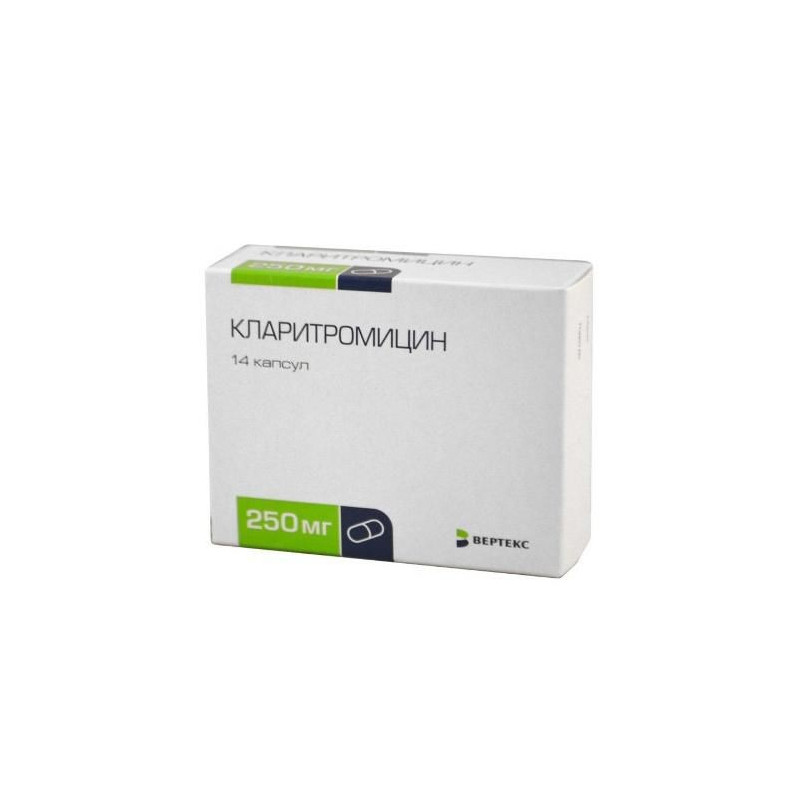



 All payments are encrypted via SSL
All payments are encrypted via SSL
 Full Refund if you haven't received your order
Full Refund if you haven't received your order
Macrolide antibiotic. It is a semi-synthetic derivative of Erythromycin. It has an antimicrobial effect, which is associated with the suppression of protein synthesis through the interaction with the 50S ribosomal subunit of bacteria. Highly active against a wide range of aerobic and anaerobic gram-positive and gram-negative microorganisms.
Infectious and inflammatory diseases caused by microorganisms sensitive to Clarithromycin, incl. diseases of the upper and lower respiratory tract, skin and soft tissues.
Individual. For oral administration for adults and children over 12 years of age, a single dose is 250 mg-1 g, the frequency of administration is 2 times / day; depending on the indications, the duration of treatment may be from 6 days to 6 months or more. For children, the daily dose is 7.5 mg / kg, the maximum daily dose is 500 mg, the duration of the course of treatment is 7-10 days.
In / in used in a dose of 500 mg / day for 2-5 days.
Nausea, vomiting, epigastric pain, diarrhea, transient increase in serum hepatic transaminases, skin rash, headache are possible.
Hypersensitivity to macrolide antibiotics.
In case of renal failure, correction of the dosage regimen is required depending on the size of the CC. In the first trimester of pregnancy is used only for absolute reasons.
